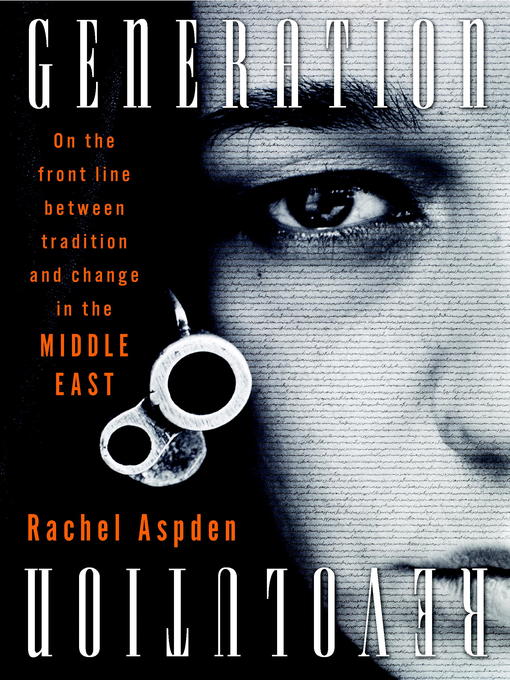
Generation Revolution
On the Front Line Between Tradition and Change in the Middle East
کتاب های مرتبط
- اطلاعات
- نقد و بررسی
- دیدگاه کاربران
نقد و بررسی

September 26, 2016
British journalist Aspden, who lived in Cairo from 2003 to 2004 and from 2011 until 2015, shows Egypt’s recent revolution through the eyes of the young people who demanded it, fought for it, and suffered most from its eventual failure. Weaving in dramatic moments of Egypt’s recent past with vivid depictions of its contemporary culture, Aspden uses her subjects’ candid narratives to reveal how the pressures of a corrupt state, a stagnating economy, a restless and disenfranchised youth, the repression of women, and the infiltration of Western innovations such as the Internet led Egyptians to erupt into revolt. Using the same gritty narrative technique, she draws a horrifying picture of the consequences of the 2011 revolution, notably the military coup of 2013 that led to tragic loss of life and plunged the country into worse crime, repression, discontent, and fear. Her insights into trends such as the groundswell of religious conservatism are sound yet concise. Despite the hopelessness and demoralization that prevail in her conclusion, she holds out hope that Egypt’s young people will again see a path to freedom. The book offers a sobering but necessary education in “the intractable suffering in the region” that Western countries can no longer afford to ignore.

December 1, 2016
A bleak view of young Egyptian lives as they joined the revolution and then fell back, disillusioned.London-based journalist Aspden first came to Egypt as a young graduate in 2003 to study Arabic, and she met many of the people whom she would subsequently pursue through the Arab Spring and beyond. She characterizes her choices of protagonists as people who, "in twenty or thirty years...would be leading their country, and I wanted to see where they would take it." Repeatedly, the author came up against the bias against foreigners--specifically, blonde, young women like herself--in a conservative, middle-class culture where students were still largely segregated by sex and people prayed several times a day. Aspden begins with Amal, a young, rebellious woman who managed an escape from her stifling familial strictures in Cairo by attending a language school in Beijing. The author's next subject is Nayera, one of "Cairo's twenty-first-century twenty-somethings [who] still inhabited a world of arranged marriages, dowries, virginity, filial obedience, and religious obligation." Having to suppress her sexual frustrations was making Nayera and her generation "crazy," as the author notes, but many were largely unwilling to "pay the price of challenging power." Amr, a restless, bored computer-science student originally from Alexandria, got caught up in "the internet, atheism, political activism, the blogs and the free spaces of downtown Cairo" and was spurred to action by the brutal police killing of Khaled Said in the summer of 2010. Ayman, a disenchanted youth from a westernized family in Cairo, gravitated toward the piety of Salafi teachers, while Mazen, forced to study dentistry by his family, was seized by illusory dreams of revolution. Amid the tumult of victory, there was widespread confusion regarding the role of the military, sexual assaults of women, and torture of prisoners. Aspden dutifully and sympathetically records how the young people withdrew or hastened to leave the country, but the book often reads like a long newspaper report. An earnest eyewitness account of a nation in tumult.
COPYRIGHT(2016) Kirkus Reviews, ALL RIGHTS RESERVED.

























دیدگاه کاربران